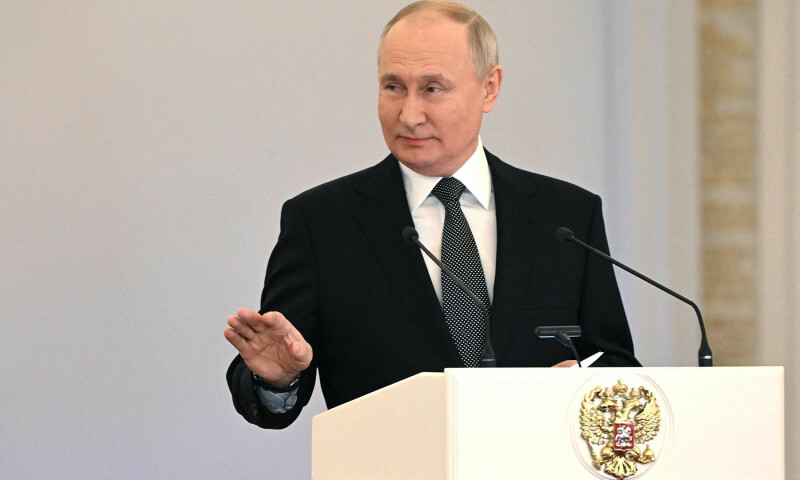Russian President Vladimir Putin declared on Friday his intention to run for president again in the 2024 election, solidifying his dominance in Russian politics and potentially extending his tenure until 2030. Having taken office in 1999, Putin has already surpassed the presidential terms of his predecessors, becoming one of the longest-serving leaders in Russian history.
The announcement came after Putin awarded soldiers involved in the conflict in Ukraine with Russia’s highest military honor, the hero of Russia gold star. During the event, a lieutenant colonel directly asked Putin about his candidacy for the upcoming election, to which Putin confirmed his decision.
The upcoming election is widely viewed as a formality, given the extensive support from the state, state-controlled media, and minimal mainstream public dissent. At 71 years old, Putin remains a dominant figure in Russian politics, and with approval ratings consistently above 80 percent, his victory seems assured.
Opposition politicians criticize the election as a mere façade of democracy, arguing that it conceals what they perceive as a corrupt dictatorship in Putin’s Russia. Supporters, on the other hand, emphasize independent polling that suggests Putin has restored order and reclaimed some of Russia’s lost influence since the Soviet collapse.
In a move signaling Putin’s extended stay in power, Russian lawmakers recently set the date for the 2024 presidential election on March 17. This decision positions Putin to secure at least a fifth term, allowing him to remain at the helm until 2030. The development raises questions about the future trajectory of Russian politics and the consolidation of Putin’s authority.















